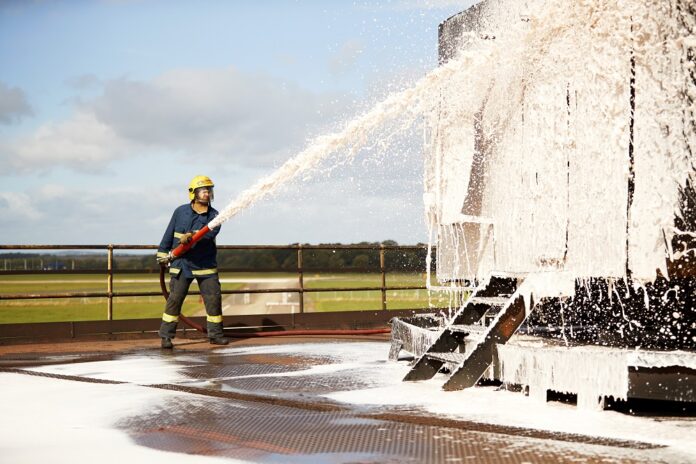To the editor:
Numerous firefighters in Iowa and across the country remain unaware of a hidden danger lurking in their protective turnout gear: per- and polyfluoroalkyl substances (PFAS).
Since 1976 these synthetic chemicals have been a staple in first responders’ standard protective clothing and firefighting foams. But while PFAS were celebrated for their heat and water resistance and effectiveness in suppressing fires, they are notorious for their ability to accumulate in the environment and the human body.
Exposure to PFAS has also been linked to a variety of illnesses, such as cancer, immune system suppression and developmental delays. Tragically, this is the reality faced by firefighters every day.
In Iowa roughly 15,500 volunteer and career personnel may have been routinely exposed to PFAS as they depend on their contaminated equipment when responding to emergencies. Consequently, it is no longer surprising that these toxic chemicals are found in their bodies.
A 2023 study revealed that firefighters have significantly higher levels of PFAS in their blood than the general public, primarily because of contact with contaminated gear and firefighting foam.
Their risk is also exacerbated by considerable environmental exposure in all 50 states. At Camp Dodge in Johnston, for instance, groundwater testing revealed PFAS concentrations as high as 95.2 parts per trillion (ppt) — far above the Environmental Protection Agency’s (EPA) maximum contaminant level of four ppt for drinking water.
Statewide, more than 100 public water systems were flagged to have been infiltrated, underscoring how deeply the crisis has spread. Meanwhile, legal pressure continues to grow as more victims seek accountability from polluters. To date, pending cases under the multidistrict litigation have risen to 9,342, with 414 new cases added in April alone.
Amid this fight, the PFAS Alternatives Act delivers meaningful relief. Such a bill commits $25 million annually from fiscal years 2024 to 2028 to develop PFAS-free turnout gear. During the same period, another $2 million yearly budget will also be allocated for training programs to teach firefighters how to reduce chemical exposure while safer alternatives are still unavailable.
These investments are crucial in Iowa, where many fire departments lack the resources to replace hazardous equipment. As such, the state’s congressional delegation should support this legislation as a public health protection and a moral obligation to those who risk their lives for others.
Jonathan Sharp, CFO of the Environmental Litigation Group P.C.
Birmingham, Alabama

















